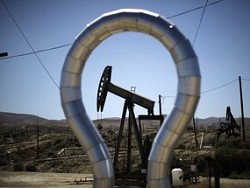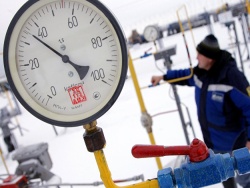
Under the Arab world international organization understand the middle East and the Maghreb countries (MENA, Middle Eastern and Maghreb Countries). Sometimes between these countries, a distinction is made. In particular, stand out the countries of the Gulf (GCC, Gulf Countries). Differentiation is due to the fact that the countries of the MENA can not be put in one row. Some of them export oil, others are importers of oil.
Because oil-producing countries — rich members of this group, they occupy the position of “big brother”. Now this situation begins to change. Falling oil prices puts economy of the rich countries of the Arab world turned on its head. In these States, not only falling rates of economic growth, but a growing budget deficit and the current account deficit.
While from 2000 to 2012, the growth rate in the MENA countries averaged 5.2%, in 2015 — only 2.5%. The forecast for 2016 is a little better: 3,1%. The main problem in MENA countries associated with the budget and current account balance. If to 2014 the budget deficit was not, in 2015, the ratio of budget deficit to GDP amounted to 9.2%. The forecast for 2016 — 10%. In addition, until 2015 in the MENA countries was not observed in the current account deficit, but in 2015, the ratio of current account deficit to GDP was at the level of 3.2%. It is expected that in 2016 this figure will grow 6.9%.
The country with a budget surplus, of course, do not go on borrowing. The country with the budget deficit, by contrast, have to borrow and pay interest out of tax revenues they receive. In other words, they are forced to cut spending on education, health, social sphere. In General, the countries with the budget deficit are doomed to the current account deficit. This means a lack of savings. These two types of deficit, economists dubbed the concept of “deficits-the twins”. It’s a trap and to get out of it, it will take time. Today in this trap was a significant part of the MENA countries.
The main reason of economic recession in the Arab countries (especially oil producers) is that their economies rely on a single sector — oil and natural gas. In other words, using one of that sector they got rich, but did not developed countries. As soon as this sector has failed, they began to decline. Another reason is that these countries are unknown to democracy, almost all of them dominated by the dynasty or the Emirate. Moreover, most of them have theocratic regimes. Therefore, government expenditure is dominated by extravagance, frivolity, corruption. Since control of the administration is absent, no action was taken. To save their regimes, the authorities distribute alms to the people and suppress it. Now they will not be able to provide such assistance. And existing social anxiety will further increase.
If the fall in oil prices continues, these economies will be in even more difficult position. And perhaps then begins the real “Arab spring”. That, in principle, not hurt.








